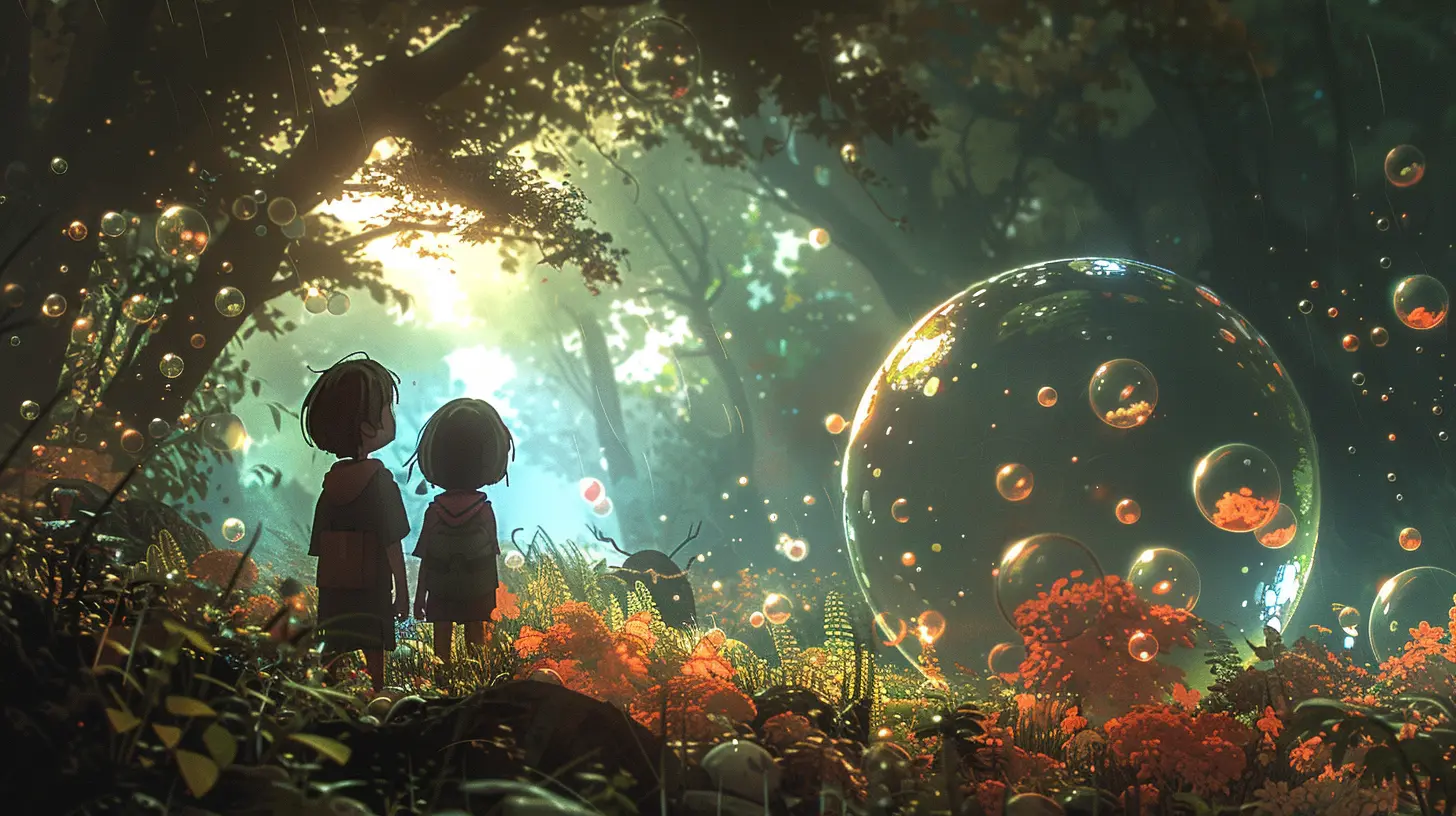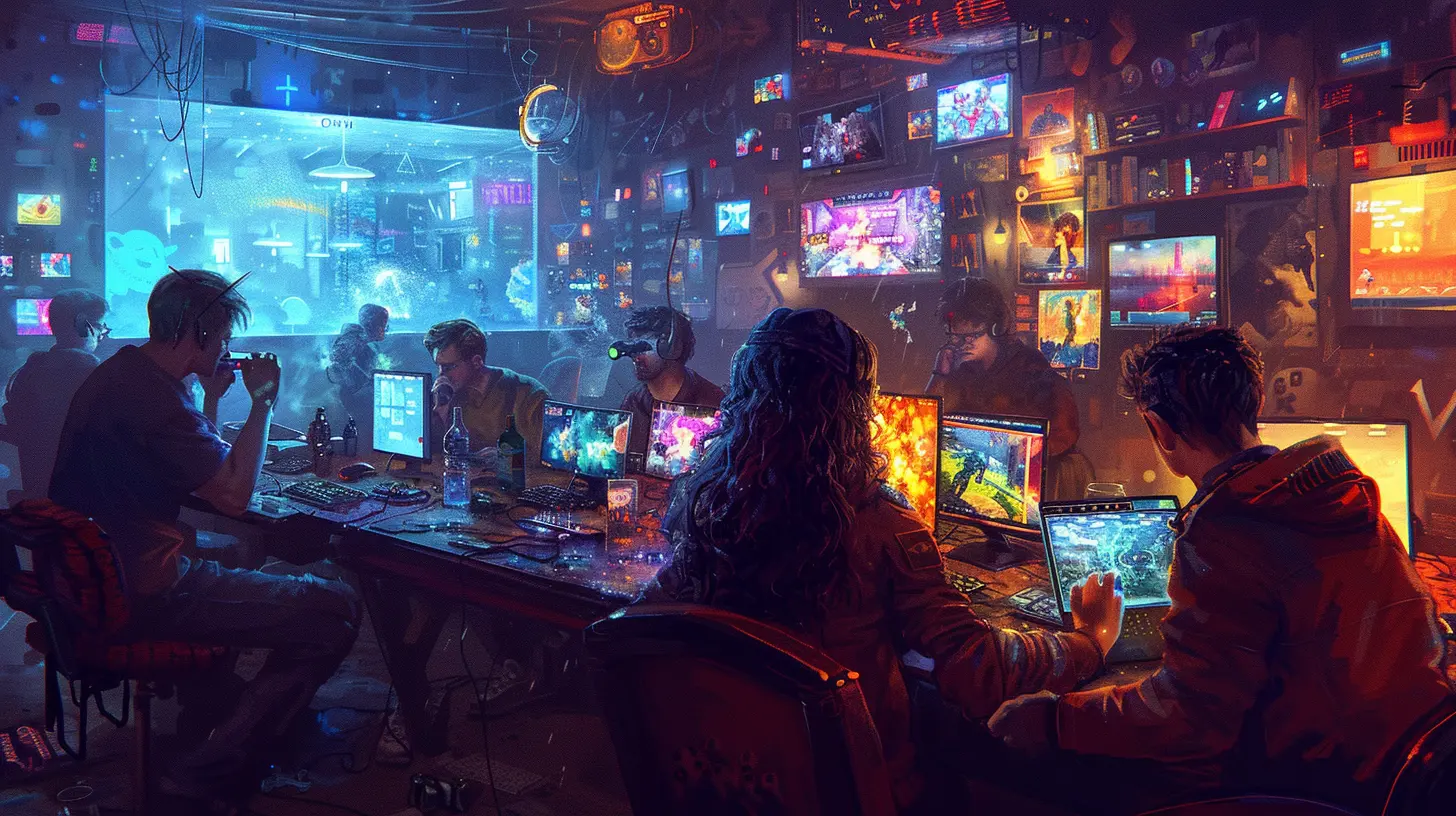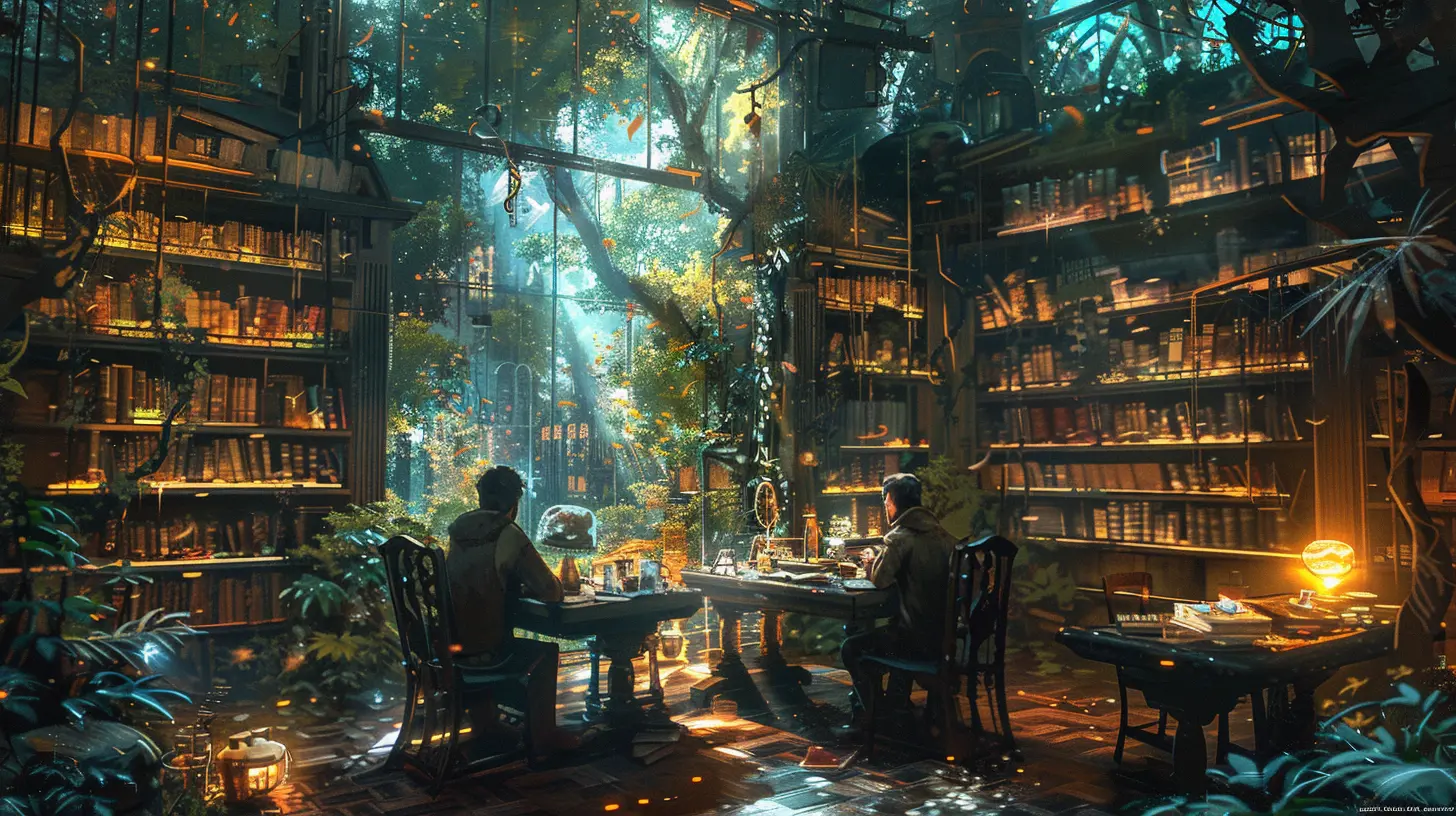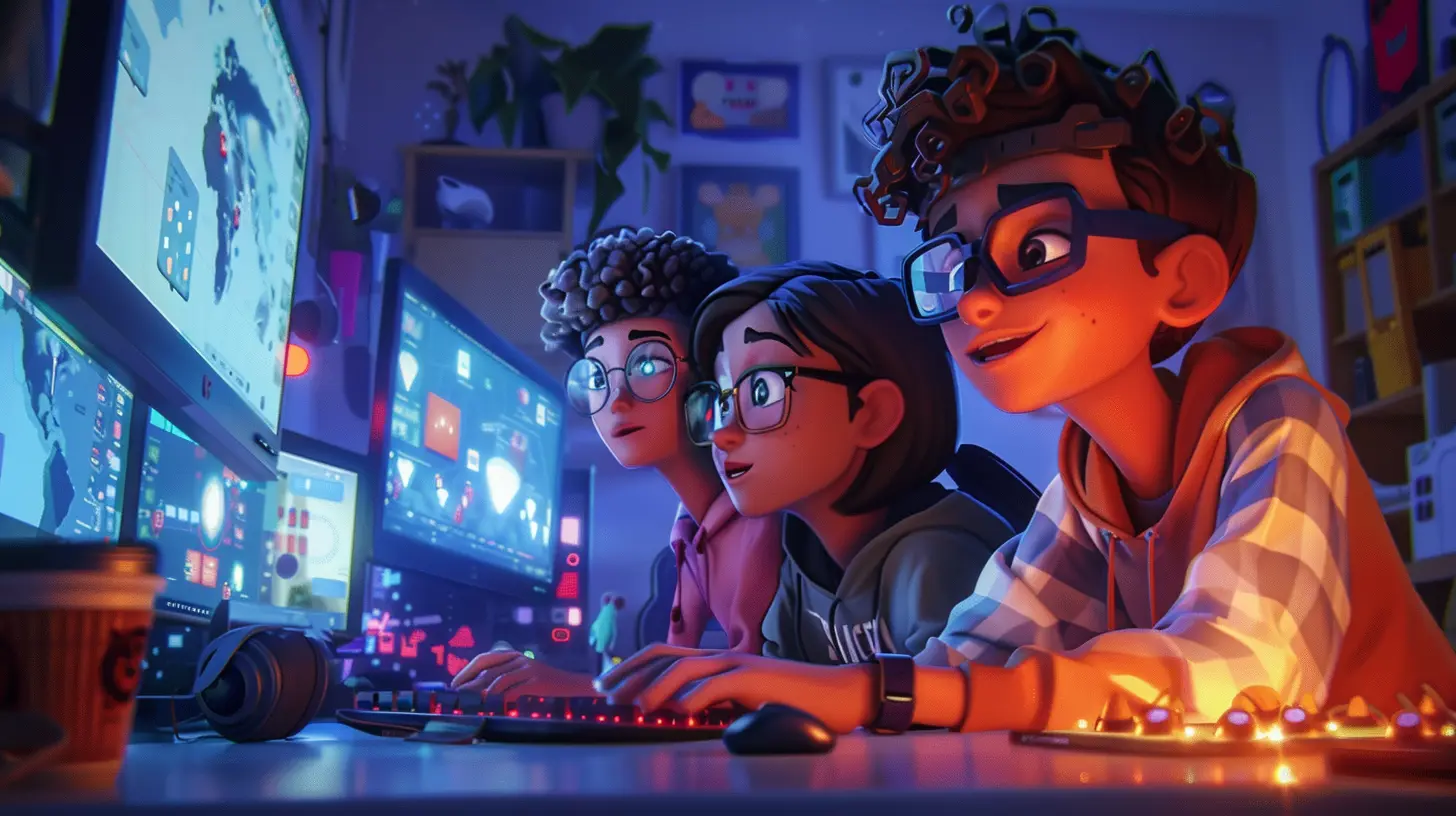The Art of Conversation in Social Games: Using Play to Deepen Bonds
21 July 2025
Have you ever noticed how a simple game night can bring people closer? There’s something magical about sitting around a table, holding cards or rolling dice, and sharing laughs over inside jokes or epic fails. Social games, whether traditional board games, party games, or video games, have an uncanny ability to crack open conversations and foster connections in ways that typical chit-chat just can't. But why is that? And how can we use the art of play to strengthen our bonds with others? Let’s dive into the fascinating world of social games and the magic they bring to the table—figuratively and literally.
Why Conversations in Games Hit Differently
If you think about it, conversations during social games are unlike any other. They’re organic, unforced, and sometimes downright hilarious. You’re not sitting face-to-face, anxiously waiting for someone to fill a pause in the conversation. Instead, the game gives you a shared focus, an anchor that makes conversations flow more naturally.Imagine this: You’re playing a party game where you have to act out ridiculous scenarios (hello, charades fans!), and suddenly everyone’s laughing at your over-the-top performance while debating who’s worse at guessing. That shared moment creates a sense of camaraderie that’s hard to replicate.
Even shy or quiet individuals, who might freeze up in typical social settings, often come alive during games. Why? Because the pressure is off. The game becomes the center of attention, and conversation bubbles up effortlessly around it. It’s like loosening the lid of a jar that just wouldn’t budge—you’re not forcing the connection; it just flows.
The Role of Play in Building Relationships
Think of social games as conversational scaffolding. They provide structure when things could otherwise be awkward and give everyone a role to play, whether it’s strategizing, bluffing, or just cracking jokes to lighten the mood. This isn’t just entertaining—it’s powerful. Research has shown that play (yes, even for us adults) boosts our mental and emotional well-being, and games specifically help solidify bonds in relationships.It’s About Shared Experiences
Ever notice how after a particularly memorable game night, you and your friends can’t stop talking about “that one time”? You know, when someone pulled an impossible move or when a game devolved into comedic chaos? These shared experiences create lasting connections because everyone involved feels like they were part of something unique.Think of it like building a highlight reel of inside jokes and memories. The more of these joyful moments you create, the stronger the bonds become. It’s a bit like weaving a tapestry; each thread—the shared laughs, the friendly rivalries, the collaborative wins—pulls the group closer together.
How Different Types of Social Games Spark Unique Conversations
Not all social games are created equal when it comes to sparking conversations. Depending on the type of game you’re playing, the dynamics (and the banter) can look pretty different. Let’s break it down.Party Games: Icebreakers Extraordinaire
Party games, like Cards Against Humanity or Codenames, are tailor-made to get people talking. They’re lighthearted, accessible, and often built around humor or wordplay. Ever had a moment when someone’s one-liner during a party game left you in stitches? That kind of spontaneous humor is social glue. Party games also work wonders in groups where not everyone knows each other—nothing breaks the ice like shared laughter over a hilariously inappropriate card combo.Strategy Games: Bonds Built on Teamwork (and Trash Talk)
On the flip side, strategy games like Settlers of Catan or Risk can spark conversations of a different flavor. These are the games that bring out people’s competitive sides, where alliances are forged and broken in the span of an hour. The banter during these games often revolves around negotiation, bargaining, and (let’s be real) a little playful trash talk. It’s like office politics but way more fun. Plus, working together towards shared goals fosters trust and collaboration, strengthening your relationships in the process.Cooperative Games: All for One and One for All
Then there are cooperative games, where the whole group works together to achieve a common goal. Games like Pandemic or Forbidden Island are less about competing and more about coordinating. Conversations in these games lean heavily on problem-solving and teamwork. They bring out the best in terms of communication skills and mutual support, which can deepen bonds with friends or even family members. It’s you against the game, and there’s something rewarding about coming out on top together.
How Video Games Take Social Interaction to the Next Level
When we talk about social games, it’s impossible to ignore the impact of video games. Whether it’s a local multiplayer brawl on the couch or an online co-op with friends scattered across the globe, video games are the ultimate conversation starters.Couch Co-op: Nostalgia and Friendly Rivalries
Remember the good old days of split-screen gaming? Games like Mario Kart or Super Smash Bros. have a way of bringing out everyone’s inner child. The conversations during these sessions are a mix of playful banter, “Oh, come on!” moments, and bonding over shared nostalgia.Online Games: Breaking Geographical Barriers
For long-distance friendships or family members in different time zones, online multiplayer games provide a platform to hang out and chat while doing something fun. Haven’t heard from your college buddy in ages? A few rounds of Among Us or Fortnite can spark hours of gameplay and conversation. Plus, the in-game chat or voice features make it easy to connect in real time, even if you’re miles apart.Tips to Make the Most of Social Games in Building Connections
So, you’re convinced that social games are a terrific bonding tool. But how do you ensure your game nights are a success, rather than an awkward mess where no one quite clicks? Here are a few pro tips:1. Choose the Right Game: Tailor the game to your group. If your crew loves humor, go for a party game. If they’re more into problem-solving, pick a cooperative one. And remember, simpler games are usually better for mixed groups.
2. Keep the Atmosphere Light: Games are supposed to be fun, not stressful. Avoid hyper-competitive attitudes unless everyone’s on board with it (looking at you, Monopoly fans). Focus on the laughs, not the wins.
3. Foster Inclusivity: Make sure everyone feels involved. If someone’s unfamiliar with the rules, take the time to explain them. There’s nothing worse than sitting awkwardly on the sidelines because you don’t know what’s going on.
4. Don’t Overdo It: Game fatigue is real. End the session on a high note rather than dragging it out. People will leave wanting more—and they’ll be more excited to join next time.
Why Social Games Matter More Than Ever
In today’s fast-paced digital world, genuine human connection often takes a backseat. We’re glued to our screens, scrolling endlessly, but how often do we truly connect with others? Social games serve as a remedy, pulling us out of our daily grind and into a space where connection feels easy and natural.Games remind us that it’s okay to be silly, competitive, cooperative, or even vulnerable. They create an environment where it’s safe to open up and simply enjoy the moment. And perhaps most importantly, they remind us of the joy of togetherness—something we could all use a little more of these days.
Closing Thoughts
Whether you’re bluffing your way through a game of Werewolf, strategizing in Catan, or teaming up to save the world in Pandemic, social games are more than just entertainment. They’re a gateway to deeper conversations, shared laughter, and stronger bonds. The next time you gather with friends or family, consider breaking out a game. You might just find that the art of play transforms how you connect with the people you care about most.all images in this post were generated using AI tools
Category:
Social GamesAuthor:

Kaitlyn Pace
Discussion
rate this article
1 comments
Elidi Bell
This article beautifully highlights how games can forge meaningful connections. It's inspiring to see how play transforms simple interactions into deep, lasting relationships. Thank you for sharing!
August 9, 2025 at 4:45 PM

Kaitlyn Pace
Thank you for your kind words! I'm glad you found the article inspiring and that it resonates with the power of play in building connections.


